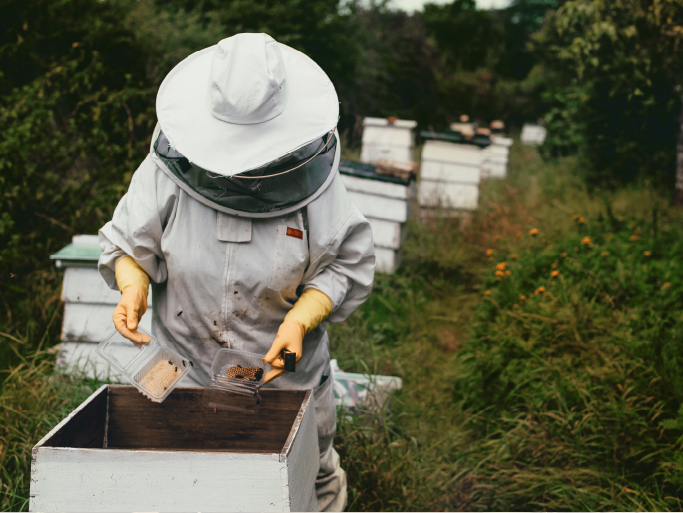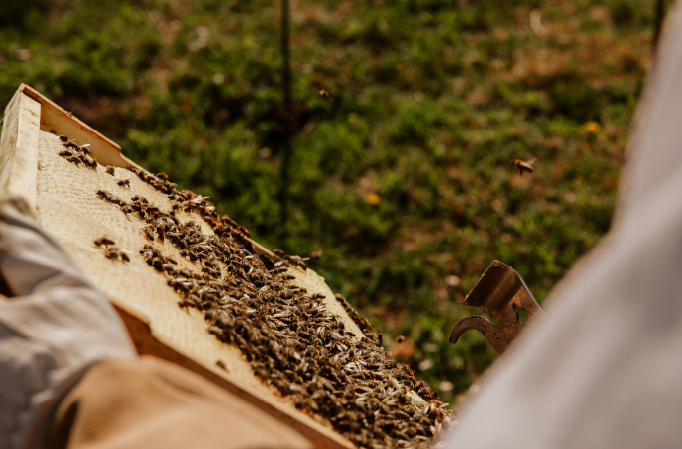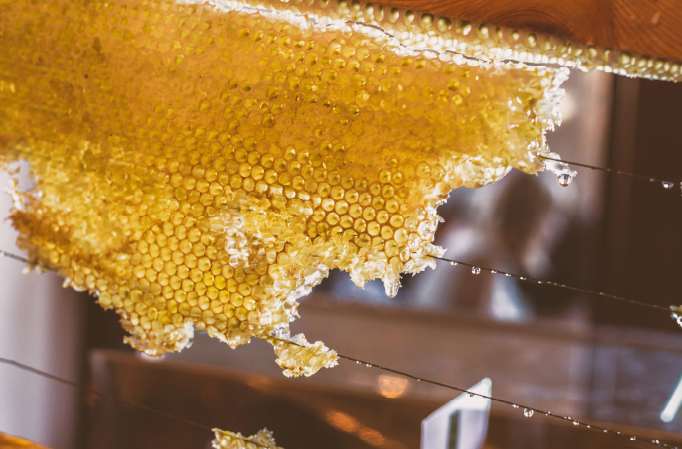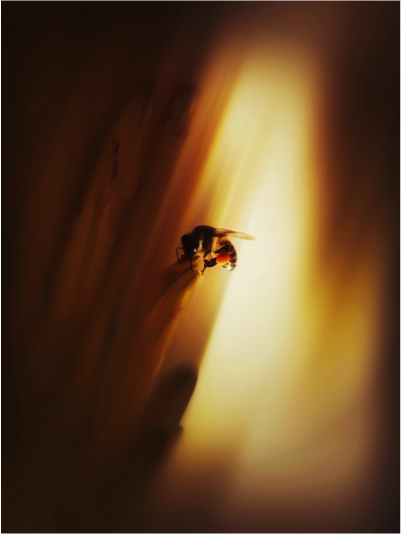At the Dejean, passion has won over the whole family.
“My brother is involved in the production of pine beehives in the Landes.
The kids are there to help out with the potting.
And my wife contributes to the packaging of the pots.”

Apiculture
Sweet nectar
Château Rabaud-Promis has a beautiful specificity: beehives are installed among the vines, to mix flora and fauna and thus develop a natural symbiosis. “I like to mix things up. And the whole point is precisely to reveal aromas.” You have to hear Thomas Déjean speak, through the similarities of language that somewhat bring the work of the winegrower closer to that of the beekeeper, the manager of Château Rabaud-Promis found a second passion there: he developed a complete range of honey. Some have aromas of acacia, others of heather or sunflower to which is added a sample of Christmas honey. The whole being presented in jars of 250 grams.



Apiculture
Symbiose
Thomas Dejean loudly proclaims: “The bee is the sentinel of the environment. “At Rabaud-Promis, everything contributes to a cohabitation between the vine and beekeeping: there are 6 hectares of acacia next to the vines.
As for how our winegrower decided to undertake beekeeping: “It happened by chance, back in 2010, during the harvest. I saw a swarm of bees between the wall and the shutter. This attracted my curiosity to the point of coming to observe them every day.” It led Thomas Déjean to delve into reading and meet a professional beekeeper, Henri Carneleyre, who agreed to give him good advice. “I went from 6 to 20 hives. Between the water supply and the control of honey volumes, there is always work to be done. The bee is very sensitive to airwaves, so I take advantage of this moment to leave the phone at home. It’s my air bubble.”